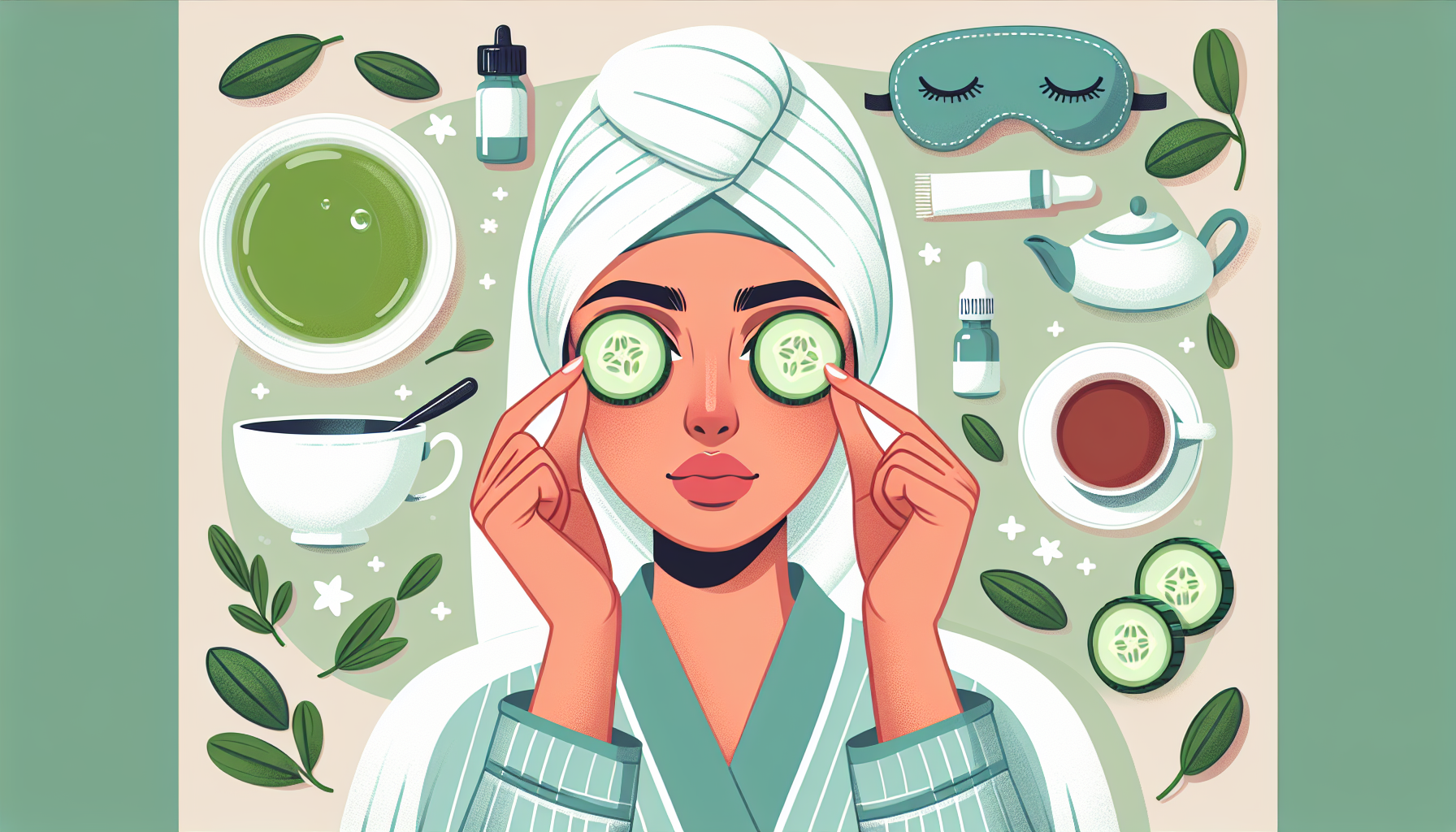How to Tackle Puffy Eyes: From Sleep to Sodium and Everything In Between
Ever woken up after what seemed like a decent night's sleep, only to find your eyes mysteriously puffy and heavy? If you've sobbed your way through a dramatic movie or yawned till tears rolled down your cheeks, you’re no stranger to the irritating puffiness that can follow. But what's causing your eyes to swell, and more importantly, how can you prevent it?
1. The Sleep Paradox: Sometimes it's not just about the hours of sleep you get—it’s about the quality. Dr. Anar Mikailov explains that lack of sleep can prompt an increase in certain hormones that retain fluid, leading to that puffy look. Moreover, insufficient sleep reduces lymphatic flow, hindering the natural detox process, thereby aggravating swelling.
2. Sleep Position Matters: Did you know your sleep posture can impact your morning face? Sleeping on your stomach can cause fluid to pool around your eyes due to gravity, Dr. Mikailov states. For a simple solution, try propping yourself up with an extra pillow to guide fluids away from your eyes.
3. Hormonal Rollercoaster: If you're noticing additional puffiness during that time of the month, it’s not just your imagination. Premenstrual hormonal changes can lead the body to retain more fluid, particularly visible around the eye area, as pointed out by Mikailov.
4. Allergy Season Blues: Allergic reactions, especially during pollen-heavy spring months, cause the body to release histamines, which in turn lead to inflammation and swelling. If your eyes are constantly puffy during seasonal transitions, allergies might be the culprit.
5. Hydration, Hydration, Hydration: When your body is dehydrated, it holds onto precious water reserves, manifesting in dreaded puffiness. Making sure you drink adequate water can help flush toxins and reduce excess fluid retention.
6. Tearful Eyes: We've all been there—watching a tear-jerker or dealing with personal stress—and found ourselves teary-eyed. Crying increases fluid around the eyes, leading to puffiness. Dr. Marisa Garshick warns that rubbing your eyes vigorously can heighten this swelling by irritating the skin further.
7. Boozy Nights: Enjoying a night out with drinks might seem harmless, but alcohol can cause the skin to retain fluid and swell. It’s best to moderate your intake and hydrate well to mitigate the effects on your skin.
8. Salt Alert: High sodium intake causes the body to become a water hoarder, which is why your eyes and face show the first signs. Processed foods are hidden sodium bombs, warns Dr. Apple Bodemer, so watch for them when trying to cut back.
9. It's Natural Aging: Unfortunately, aging gracefully sometimes means dealing with more pronounced puffiness due to collagen and elastin loss. The skin around the eyes thins, making it more likely to sag and puff, highlighting the need for good skin care habits early on.
10. Underlying Health Concerns: Persistent puffiness can be a sign of something more severe, such as thyroid issues. If changing your habits doesn’t help, it’s important to consult with a healthcare professional to rule out medical problems, advises Mikailov.
11. Blame It on Genes: Like many things in life, genetics can play a significant role. If puffy eyes run in your family, there might be limited options outside of medical procedures. Awareness and preventive care, however, can help manage hereditary puffiness.
Remember, while puffy eyes can often be addressed by lifestyle changes, understanding your body and reacting to persistent problems is key. Share this post with someone who could use a tip or two on improving their morning face!
